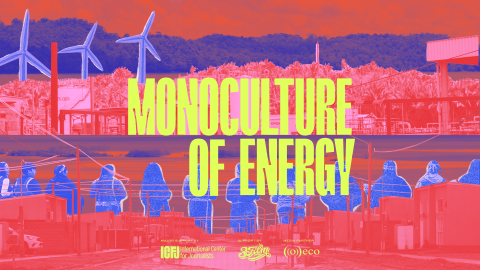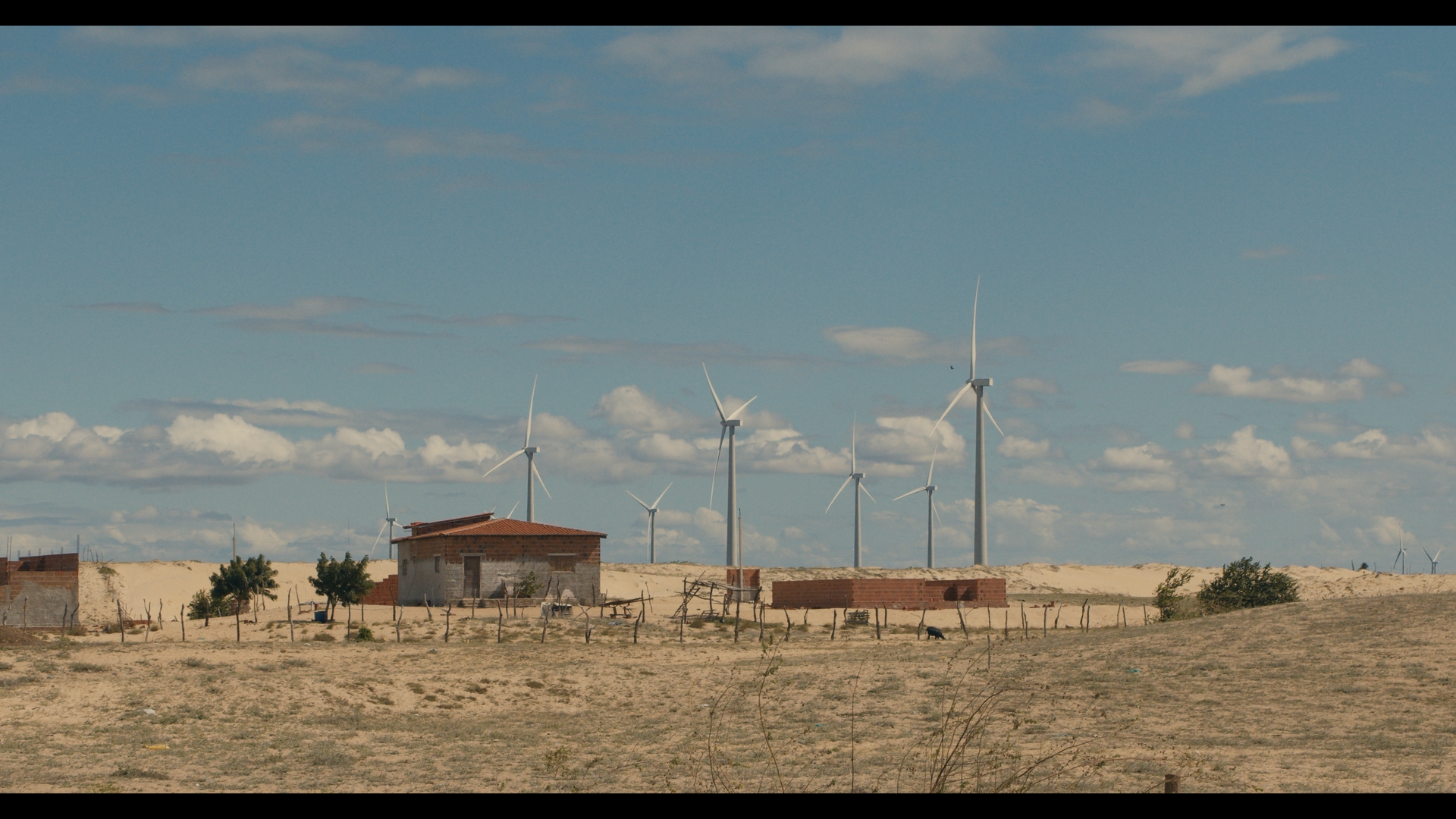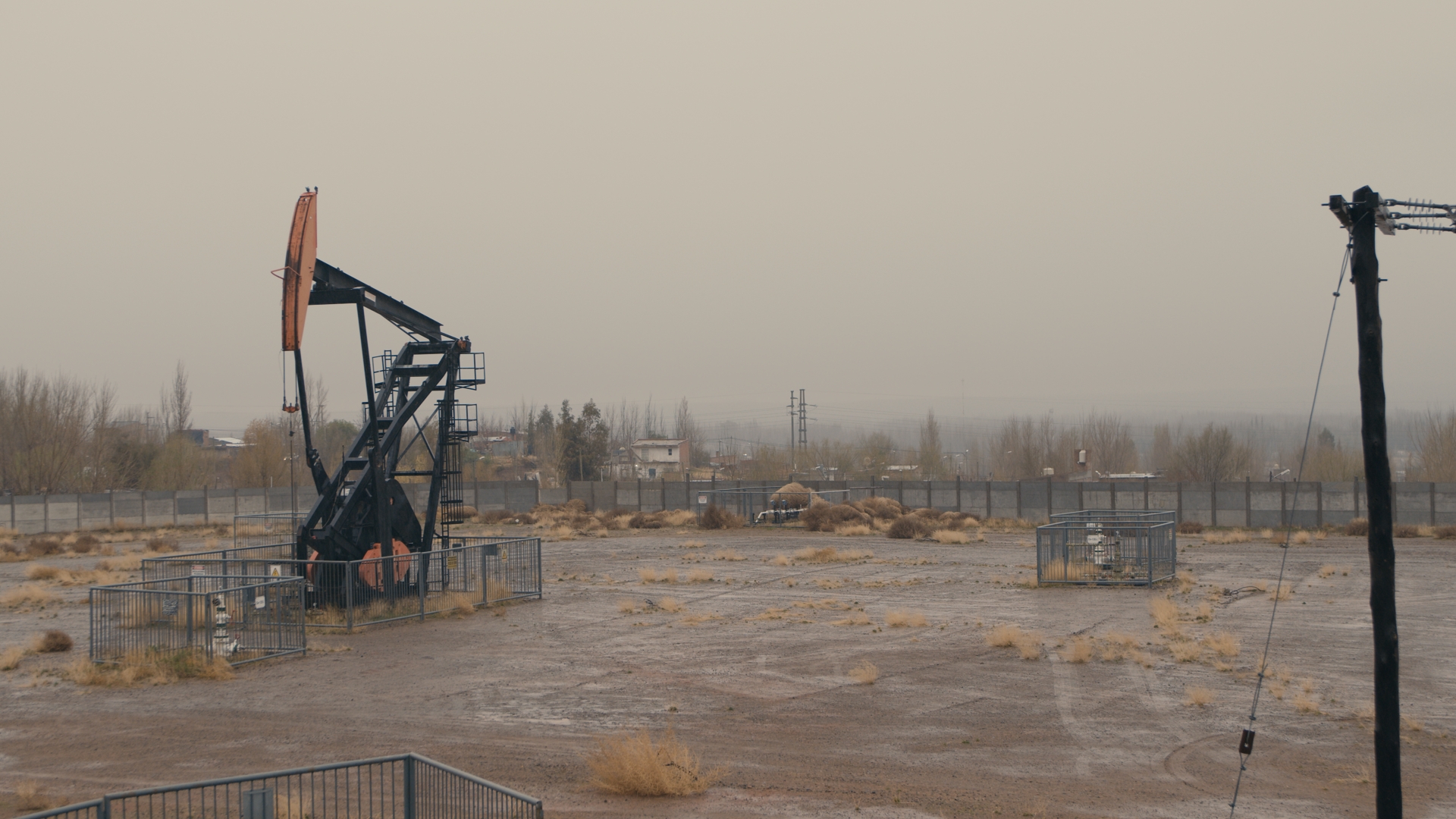
Effortlessly blending gorgeous shots of the natural world, archival material and intimate interviews with those affected by energy projects, ICFJ fellow Bárbara Poerner’s documentary debut hooks one in and gives the viewer a sense of being right there with the documentary’s subjects.
The docu-series, Monocultura da Energia (Monoculture of Energy), explores the impacts of energy projects through four episodes: the dispute around oil exploration in Foz do Amazonas, one of the most socio-environmentally sensitive areas on the planet; the impact of Argentine fracking and the risks if the technique reaches northeastern Brazil; the ecosystems and populations affected by wind farms in Rio Grande do Norte; and, finally, an episode with reflections on what fair and clean energy would look like. This final episode centers the voices of Indigenous people, quilombolas (Afro-Brazilians descended from enslaved Africans who escaped into the Brazilian hinterlands), riverside dwellers and fisherwomen, and reveals how those shaping the energy transition agenda must not fail to listen to them.
Bárbara Poerner, a freelance journalist based in Florianópolis and São Paulo, received one of ICFJ’s inaugural Jim Hoge Reporting Fellowships in early summer 2023. Poerner works at the intersection of women's rights, climate justice and cultural issues. This recent series was published in partnership with ((o))eco, a Brazilian outlet specializing in environmental journalism. The project was directed, written and produced by Poerner and filmed and edited by Rodrigo Ferreira.
Poerner’s work has already received a great deal of attention, with the first episode broadcast at COP28 during a panel focused on Brazil and Poerner herself receiving messages from Brazilian environmental researchers working on energy transition and ecosystem preservation. She says her work highlights an often overlooked point in environmental efforts - that if renewable energy follows the traditional extractive economic model, it will recreate the same human rights problems as traditional energy production and resource extraction. “A change in the socioeconomic paradigm is necessary,” Poerner said.

Poerner said the ICFJ fellowship provided her with a crucial opportunity to get out farther into the field and have direct contact with the communities affected by the subject of her reporting: “Nothing compares to being able to do journalism in person, going to the territory, talking face to face with each person. It’s essential to telling good stories.” Her interviewees also stated that the project was sorely needed to combat the silencing of people in rural areas and predatory development projects.
The Jim Hoge fellowship is designed to support rising news leaders in the U.S. and abroad, helping the next generation of journalists produce high-quality news and advance their careers. The fellows receive funding and support to pursue reporting projects on pressing global issues.

Moving forward, Poerner hopes to continue and expand the work she started with the Hoge Fellowship. She is working to move from a mini-series into longform documentary storytelling while continuing to focus on South American stories. Additionally, Poerner hopes to screen the mini-series in a public hearing at the Brazilian national legislature in early 2024.